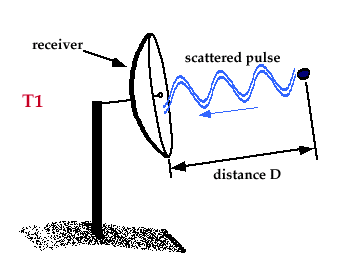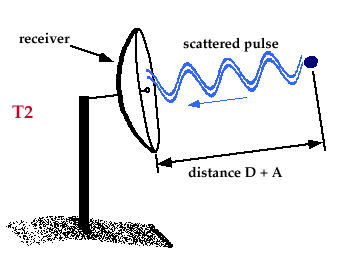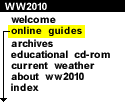
|
Doppler radars can measure the component of the velocity of targets
toward or away from the radar. This component is called the "radial
velocity".
| For example, at time T1 a pulse is sent towards a target and it returns a target distance "D". |

|
| 2) At time T2, another pulse is sent towards the same target and returns a target distance "D+A" |

|
The distance to target has changed from times T1 to T2, resulting in a phase shift between the two return signals, which Doppler radars are capable of measuring. By knowing the phase shift, the wavelength and the time interval from T1 to T2, the velocity the target has moved toward or away from the radar can be computed. If the target is moving sideways so that its distance relative to the radar does not change, the radar will record zero radial velocity for that target.

scanning modes |
|

Imagery |




